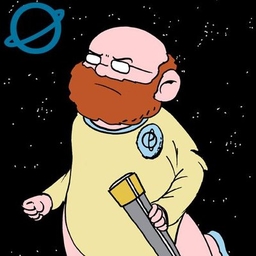
Phil Plait
Columnist at Scientific American
Freelance Science Writer at Bad Astronomy Newsletter
Articles
-
1 week ago |
scientificamerican.com | Phil Plait
You’ve probably watched this sort of science-fiction scene more than once: some stalwart starship captain and their crew are fleeing from aliens/escaping a supernova /running out of fuel and are seemingly out of options, about to get eaten/vaporized/stuck. But then, just ahead, they spot a planet! So they head right for it, rockets blazing, then dive down and use its gravity to slingshot to safety. Hooray! Cue the triumphant music. So it goes on the silver screen, at least.
-
2 weeks ago |
scientificamerican.com | Phil Plait
I don’t think it’s overly poetic to say that stars are how we know the universe. When we look out at the night sky, stars are overwhelmingly what we see—thousands of them, ranging from Sirius, the brightest in the night sky, to ones so dim they are known by mere catalog designations instead of names. And for every star we can see by eye in our sky, telescopes can see millions more.
-
2 weeks ago |
aol.com | Phil Plait
I don’t think it’s overly poetic to say that stars are how we know the universe. When we look out at the night sky, stars are overwhelmingly what we see—thousands of them, ranging from Sirius, the brightest in the night sky, to ones so dim they are known by mere catalog designations instead of names. And for every star we can see by eye in our sky, telescopes can see millions more.
-
3 weeks ago |
scientificamerican.com | Phil Plait
We’re all familiar with the sun’s daily motion in the sky. It rises in the east, gets higher in the sky until circa noon, then begins its hours-long descent to set on the western horizon. You may also know of our star’s more stately annual journey. For Northern Hemisphere dwellers, as summer approaches, it moves a tiny bit higher in the sky every day at noon until the June solstice, when it turns around and starts to get lower every day until the December solstice.
-
3 weeks ago |
aol.com | Phil Plait
We’re all familiar with the sun’s daily motion in the sky. It rises in the east, gets higher in the sky until circa noon, then begins its hours-long descent to set on the western horizon. You may also know of our star’s more stately annual journey. For Northern Hemisphere dwellers, as summer approaches, it moves a tiny bit higher in the sky every day at noon until the June solstice, when it turns around and starts to get lower every day until the December solstice.
Try JournoFinder For Free
Search and contact over 1M+ journalist profiles, browse 100M+ articles, and unlock powerful PR tools.
Start Your 7-Day Free Trial →X (formerly Twitter)
- Followers
- 38
- Tweets
- 3
- DMs Open
- No

Sorry I'm not him.

What?

Hi Twitter